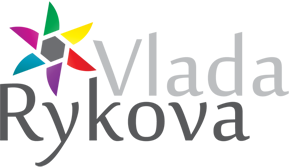Этика делового общения: что это такое и зачем она необходима
Определение этики делового общения
Этика делового общения – это целый ряд норм и правил, которые регламентируют поведение каждого человека в процессе осуществления им трудовой деятельности. Сюда необходимо отнести как четко определенные правила, так и негласные. То, какие именно нормы существуют в той или иной конкретной организации, зависит от множества нюансов, среди которых:
- Культурные традиции государства, на территории которого расположена компания;
- Особенности менталитета общества;
- Специфические принципы и нормы общения, которые присущи данному профессиональному кругу лиц.

Для чего необходимо знать и придерживаться этики делового общения?
Ответ прост:
- для достижения поставленных целей,
- для построения успешного бизнеса,
- продвижения по карьерной лестнице.
Без нее деловое общение приобретает абсолютно беспорядочный характер. Этика делового общения необходима не только для общения между сотрудниками компании, но также для ведения переговоров с представителями других организаций, Клиентами и т.д.
Какое оно, деловое общение?
Нормы и стандарты, в соответствии с которыми протекает деловое общение, условно можно разделить на две группы:
- Собственный этический кодекс, который сформирован у каждого человека с детских лет;
- Нормы и правила, присущие организации, где человек работает, профессиональный этический кодекс.
Все деловое общение можно условно разделить на две категории:
- Прямое – непосредственное общение между одним или несколькими людьми;
- Косвенное – осуществляется на расстоянии – с помощью телефона, сети Интернет и т.д.
Первое значительно результативнее, а наиболее сложным вариантом делового общения считается разговор по телефону.
Некоторые правила и рекомендации
Можно выделить целый ряд основополагающих принципов, которые следует знать каждому, кто хочет добиться успеха в своей профессиональной сфере деятельности:
- Умение слушать – непременно пригодится, так как благодаря нему вы сможете понять, что именно хочет донести до вас собеседник, а также проявите к нему уважение.
- Правильность речи – как письменной, так и устной, позволит вам доносить свои мысли понятно и кратко.
- Спокойствие и доброжелательность в общении. Возможно, сегодня – вы получите похвалу, завтра – критику, но в любом случае необходимо оставаться терпеливым и уравновешенным.
Этика бизнеса. Что нужно знать о культуре делового сотрудничества?
Этика бизнеса, профессиональных отношений – это давнее понятие, возникшее со времен осуществления людьми первых сделок обмена какими-либо предметами. Очевидно, что сегодня этика бизнеса существенно изменилась и включает в себя соблюдение прав каждого человека, принятие общечеловеческих норм поведения, строгое исполнение законодательных и нормативных актов.
Этические правила отношений в бизнесе
Правила бизнес этикета или профессиональной этики выстраиваются преимущественно на соблюдении общепринятых моральных норм и норм законодательства. Для достижения целей и получения большей прибыли подходят далеко не все средства. Конкуренция, какая бы она ни была жесткая, не должна вестись «грязными» методами.
Основные направления бизнес этики
Каждое направление имеет свои принципы, как закрепленные законодательно, так и неписанные правила, принятые обществом как необходимые.
Отношения внутри коллектива
Внутренняя этика определяется каждой компанией самостоятельно с учетом отраслевых или исторических традиций. Наряду с этим имеют место единые стандарты:
- защита прав всех работников вне зависимости от квалификации и должности;
- недопустимость неравенства прав работников;
- доступность сведений о деятельности компании каждому сотруднику в пределах его полномочий;
- взаимодействие руководителя и подчиненных должно опираться на авторитет, а не на властные решения.
Партнерские отношения
Правила партнерских отношений указывают на недопустимость каких-либо махинаций и подтасовок. Махинация – это форма обмана, которая дает кратковременный результат. Информация об обмане при совершении сделки рано или поздно вскроется и приведет в дальнейшем к финансовым потерям.
Отношения с клиентами
Сегодняшний клиент владеет достаточной информацией, поэтому вводить его в заблуждение не только сложно, но и чревато последствиями, учитывая возможные судебные разбирательства.
Общаясь с клиентом:
- будьте вежливы, но не заискивайте;
- не допускайте излишнего напора, общение должно быть с позиций равенства;
- исполняйте обязательства полностью и в установленные сроки;
- не допускайте перерастания делового общения в банальный конфликт;
- следите за своим поведением, речью, внешним видом.
Внесоциальные стандарты
К внесоциальным стандартам относятся экологические и эстетические правила ведения бизнеса. Например, сброс отходов в реку – это процесс, который негативно воздействует на окружающую среду и противоречит всем нормам этики.
Неукоснительное следование этике ведения бизнеса позволит: создать деловую, рабочую атмосферу внутри коллектива; организовать взаимовыгодное сотрудничество с партнерами; получить достойную репутацию у клиентов. Все это будет способствовать развитию и процветанию бизнеса.
Переписка по электронной почте: этика и правила
С развитием интернета в нашу жизнь пришёл новый вид связи, ставший уже привычным для всех – электронная почта. Ей пользуется каждый из нас в большей или меньшей степени. Это касается и общения по деловым вопросам, и решения личных вопросов. Но даже в офисах, где сотрудники каждый день используют email, зачастую сталкиваешься с отсутствием понимания базовых правил ведения такой переписки.
Итак, что же стоит учесть при написании писем посредством электронной почты, чтобы зарекомендовать себя как грамотного и этичного человека?
- Выбор адресата
В первую очередь необходимо решить, кому вы пишете, в зависимости от поставленной цели. Если вы берёте информацию с сайта, постарайтесь определить именно то контактное лицо или отдел, который отвечает за ваш вопрос. Не пишите на все указанные адреса, указанные в разделе «Контакты». Если это внутренняя корпоративная почта, не используйте массовые рассылки, а постарайтесь сузить круг адресатов до заинтересованных или ответственных лиц.
В случае, когда вы не уверены в корректности адресата, в конце запроса вы можете добавить фразу «Если запрос не к вам, прошу переадресовать мое письмо ответственным лицам, либо сообщить их контакты».
И ещё один нюанс – при ответе на письмо обратите внимание, стоит ли оставлять все адреса в копии или есть смысл сократить список.
- Тема
Обязательно указывайте тему письма. Правильная тема письма привлекает внимание и интерес. Тема должна быть четкая и лаконичная, без сокращений, множества пунктуационных знаков и заглавных букв. Отразите в ней основную суть запроса.
- Приветствие
Конечно, начать письмо необходимо с приветствия. Самый оптимальный вариант – вне зависимости от времени суток использовать фразу «Добрый день!». Если переписка неформальная, можно написать и «Доброго времени суток», и «Привет!», но поздороваться в любом случае необходимо.
Если вы пишете одному человеку и знаете его имя, обязательно укажите его в приветствии. Ведь всем известно, что личное имя – самое приятное слово для человека. Тогда адресат более внимательно воспримет ваш запрос. Если пишете группе людей, используйте, в зависимости от ситуации, слова коллеги, друзья, партнёры.
- Тело письма
Обратите внимание на длину текста. Все зависит от ситуации и контекста, но не стоит делать письмо слишком длинным, иначе информация будет воспринята частично или не дочитана до конца. Пишите кратко и по существу, без лишних слов. Не используйте сокращения и жаргон.
Если текст длинный, разбивайте его на небольшие абзацы или нумерованные пункты.
Не стоит использовать крупный шрифт и выделение ярким цветом без необходимости.
- Подпись
В конце письма обязательно нужна подпись. Если вы выступаете как представитель компании, то в подписи также должны быть указаны наименование компании, ваша должность и контакты. Если переписка не столь формальная, то достаточно имени. Стандартной является фраза «С уважением» перед именем, либо «Спасибо!».
Эксперт в области интернет-маркетинга. Руководитель маркетингового агентства MAVR.
Бизнес-степень «Мастер делового администрирования» (MBA).


